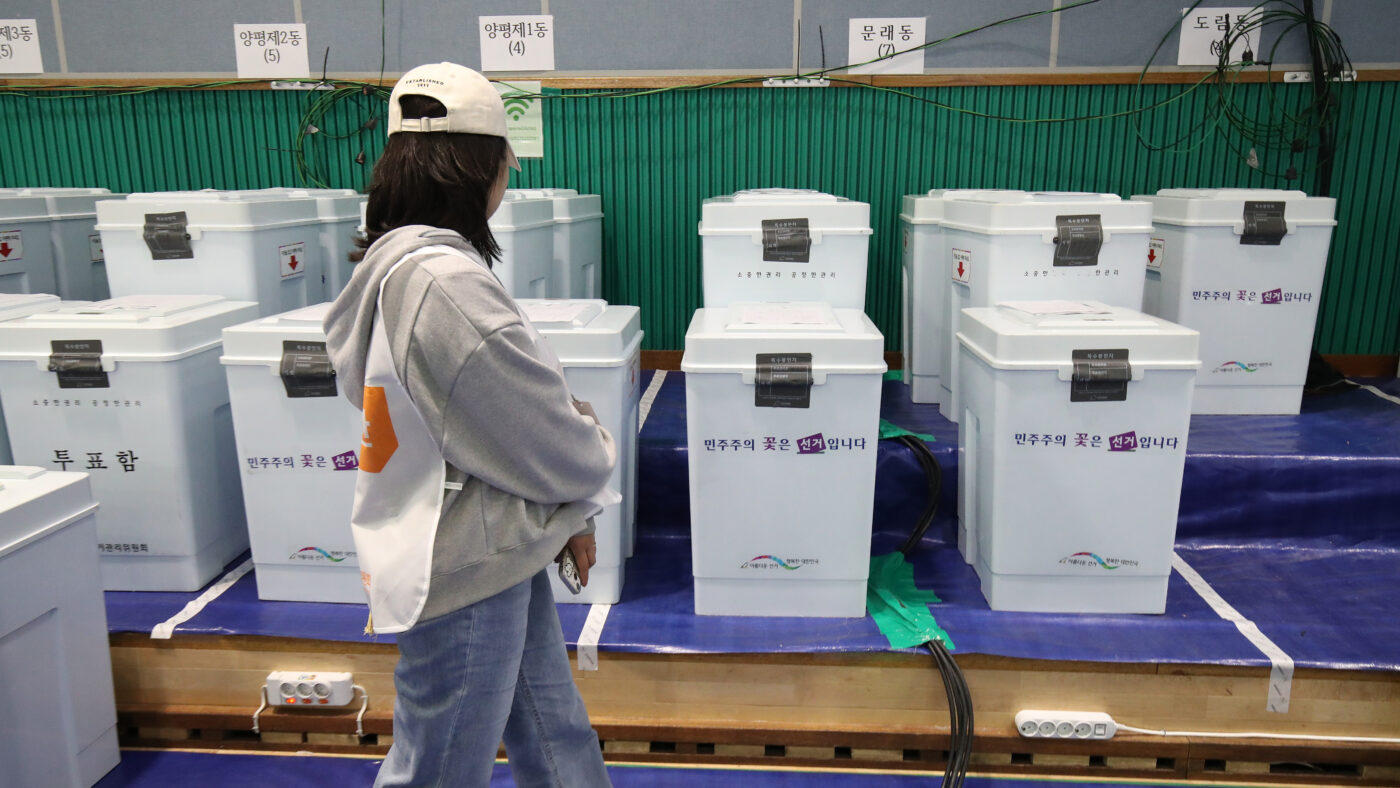In last week’s South Korean election, people voted on the traditional issues: the economy, cost of living, healthcare and the country’s ongoing fertility crisis. But, in a first for the country, a strong environmental platform was also a must-have.
While the environment may not be the number one issue for Korean voters, there is no mistaking its importance. Polls have shown that voters place the ‘climate crisis’ is on a par with the ‘population crisis’, with 71% and 79% of Korean voters prioritising the two respectively. For the country with the lowest global birth rate to rank climate almost as highly as population is significant. Even more striking is that in the same poll of over 17,000 voters, a third self-identified as ‘climate voters’, or people who thought climate was one of the top three issues in this election.
Indeed, the most important finding from this poll was that two-thirds of voters would be willing to change their vote based on climate policies, to a party whose politics they did not necessarily otherwise believe in. Ignoring the climate is now a political liability.
The main political parties in Korea have responded to this concern by putting the climate in their top ten pledges for the first time in the country’s history. There has been a significant drive to be seen as green, with both main political parties fielding especially green candidates. Most interestingly, both parties established their own, distinct environmental platforms.
Climate change isn’t a new issue in Korean politics. But since the last legislative election in 2020, events have reinforced the need to focus on mitigation and adaptation to rising temperatures. This was the first election for Korea since the Russian invasion of Ukraine and the subsequent spike in global energy prices, as well as the first since catastrophic flooding in 2020 and 2022. Korean voters are aware of the environment like never before.
But it’s not just in Korea where the climate matters to voters. More than two billion people will go to the polls in 2024, with 19 national elections so far and major elections in India, the EU, the US and the UK still to come. In polling around voter priorities, it’s clear that the climate continues to be a major concern in many countries. In a poll of voters from nine EU countries, the climate was the second most important voting issue after economic turmoil, and was the top concern in France and Denmark. In the UK, it has remained the fourth most important issue for over a year, ahead of key areas like crime and education. No wonder climate is one of the big ‘national missions’ that the Labour Party is focusing on.
Of course, this doesn’t mean we should expect a global green sweep in this election year. The discussion in the final days before the Korean election was firmly on the cost of living. That was particularly to the detriment of the conservative People’s Power Party (PPP), which has the presidency but no parliamentary majority. As a result, they have underperformed in the polls and have gained fewer seats than expected.
The key difference in this election for the PPP is that this is the first time that it has made the environment a key part of its platform and has promised ambitious policies. Had this not been the case, the PPP may have fallen foul of these newly identified ‘climate voters’ – and done worse still.
As the environment becomes more mainstream as a political issue, it is no longer owned by single-issue green parties and there is no longer one path to decarbonisation available. It’s a welcome development to go from ‘whether’ to decarbonise to ‘how’ to do it. The environment alone may not be a reason to vote conservative but it’s no longer a reason to vote against the conservatives. The only live debates on the environment in Korea are now on policies rather than action.
Other conservative parties across the world would do well to learn these lessons as they face their own elections. The number of voters who are willing to consider a party with no credible environmental platform is shrinking everywhere. And these voters deserve a real choice on environmental policies and how they are delivered, just as they currently get a choice on economic policies or healthcare policies. It’s also important to flag that these climate voters tend to be younger, and given the struggle that many centre-right parties are having in attracting younger voters, this concern cannot be ignored.
As a conservative, I welcome the free market and pro-growth environmental policies that the UK Conservative Party has championed for many years. But as a young person concerned about climate change, I would find it much harder to vote for a Conservative Party that didn’t offer a bold environmental agenda, even if the main deciding factor is still which party I trust with the economy.
Looking ahead to our own election, I hope I get to vote for a Conservative Party which wants to have an active conversation on how to decarbonise rather than on whether we should.
If the Korean election is anything to go by, I am not alone.
Click here to subscribe to our daily briefing – the best pieces from CapX and across the web.
CapX depends on the generosity of its readers. If you value what we do, please consider making a donation.


